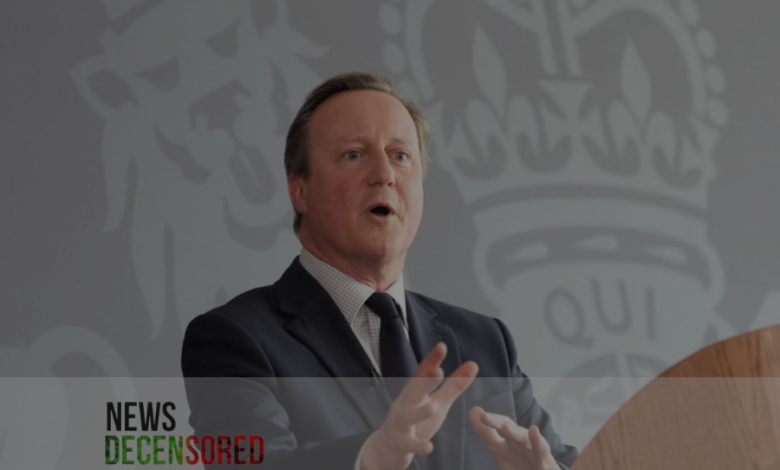UK ministers again find no reason to stop arms exports to Israel

Rather salaciously, the UK government has determined that arms sales to Israel should continue following a recent evaluation of the IDF’s operations in the strip. This reasoning comes from a thorough review of the IDF’s conduct up to April 24, 2024, as per disclosure in a note published on the Foreign Office website on Friday evening.
It is a recurrent UK assessment exercise; the previous one, done up to the end of January, was deliberated on by Deputy Foreign Secretary Andrew Mitchell this month. This new review also looked at the factors that led to the shooting dead of three British humanitarian workers working for World Central Kitchen by Israeli security agents.
In their statement, ministers did not say when they advised proceeding with arms exports. The process comprises recommendations made by the foreign secretary, David Cameron, and then approved by the business secretary, Kemi Badenoch.
Specifically, there is a concern concerning the possible violation of international law, especially about a large-scale operation on the ground in Rafah. Nevertheless, the review did not focus on the most recent cases of hostility connected with Rafah. Ministers have not heeded this call and continue with the campaign while claiming the need for a transparent investigation of the execution of 45 Palestinians a week ago.
The Foreign Office statement read: Since the provision of arms and the export of arms is strictly regulated in the United Kingdom, the foreign secretary has reviewed the current advice regarding the latest situation in Gaza and Israel’s actions in their military operations. This assessment covered the period up to April 24, 2024, respectively.
We have therefore lost our stance on export licenses as decreed by the business secretary. This is precisely what ministers have been advised, such as these Labor Ministers who vehemently opposed WorkChoices on behalf of the working people they represent. Of course, as always, we shall continue to monitor the position closely.
“The process of assessing the arms export license applications in the UK is very rigorous, and the applications are reviewed systematically against the Strategic Export Licensing Criteria.
These include the criteria that OR will not issue an export license if the company believes the items might be used in the commission or facilitation of a severe violation of IHL. ”
It is relatively entirely compromising that alongside all these measures, the UK still decided to proceed with the supplies of arms while the actions of the International Criminal Court (ICC) speak differently. There is still confusion about the proper target of the ICC prosecution. Still, most recently, the new ICC prosecutor, Karim Khan, recently issued arrest warrants for Israeli Prime Minister Benjamin Netanyahu and Minister of Defence Yoav Gallant. These warrants were backed by Elizabeth Wilmshurst, a former legal expert in the foreign office who had the principal reason for resigning over the legal advice regarding Iraq before the invasion of the country in 2003.
It caused disapproval, as some critics maintain that fuelling arms exports where there are credible suspicions of human rights abuses and, in effect, challenging humanitarian conduct does not subscribe to the UK’s policymaking. On the other hand, critics claim that due to the stringent criteria, pumps and arms exports meet international standards. With continuing evaluations, they will address the changes in the situation on the ground.
Due to the conflict in Gaza, the ongoing arms export policy in the UK raises questions that need to be discussed regarding diplomatic relationships, legal requirements, and humanitarian issues. The government has vowed to conduct periodic assessments of the situation so as to reach future decisions that are fully responsive to changes in the conflict situation and the law of armed humanitarian assistance.




